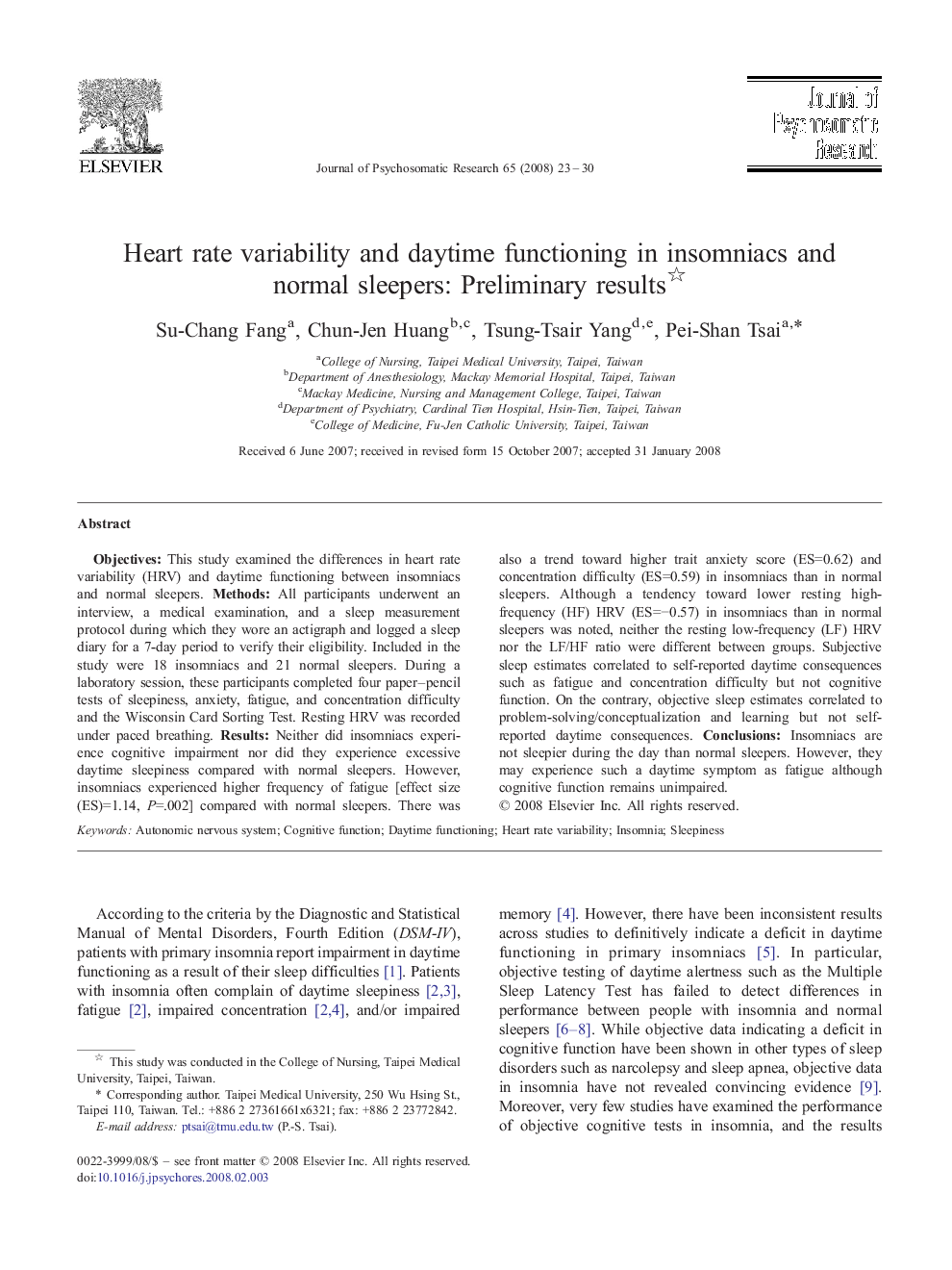| Article ID | Journal | Published Year | Pages | File Type |
|---|---|---|---|---|
| 950380 | Journal of Psychosomatic Research | 2008 | 8 Pages |
ObjectivesThis study examined the differences in heart rate variability (HRV) and daytime functioning between insomniacs and normal sleepers.MethodsAll participants underwent an interview, a medical examination, and a sleep measurement protocol during which they wore an actigraph and logged a sleep diary for a 7-day period to verify their eligibility. Included in the study were 18 insomniacs and 21 normal sleepers. During a laboratory session, these participants completed four paper–pencil tests of sleepiness, anxiety, fatigue, and concentration difficulty and the Wisconsin Card Sorting Test. Resting HRV was recorded under paced breathing.ResultsNeither did insomniacs experience cognitive impairment nor did they experience excessive daytime sleepiness compared with normal sleepers. However, insomniacs experienced higher frequency of fatigue [effect size (ES)=1.14, P=.002] compared with normal sleepers. There was also a trend toward higher trait anxiety score (ES=0.62) and concentration difficulty (ES=0.59) in insomniacs than in normal sleepers. Although a tendency toward lower resting high- frequency (HF) HRV (ES=−0.57) in insomniacs than in normal sleepers was noted, neither the resting low-frequency (LF) HRV nor the LF/HF ratio were different between groups. Subjective sleep estimates correlated to self-reported daytime consequences such as fatigue and concentration difficulty but not cognitive function. On the contrary, objective sleep estimates correlated to problem-solving/conceptualization and learning but not self-reported daytime consequences.ConclusionsInsomniacs are not sleepier during the day than normal sleepers. However, they may experience such a daytime symptom as fatigue although cognitive function remains unimpaired.
